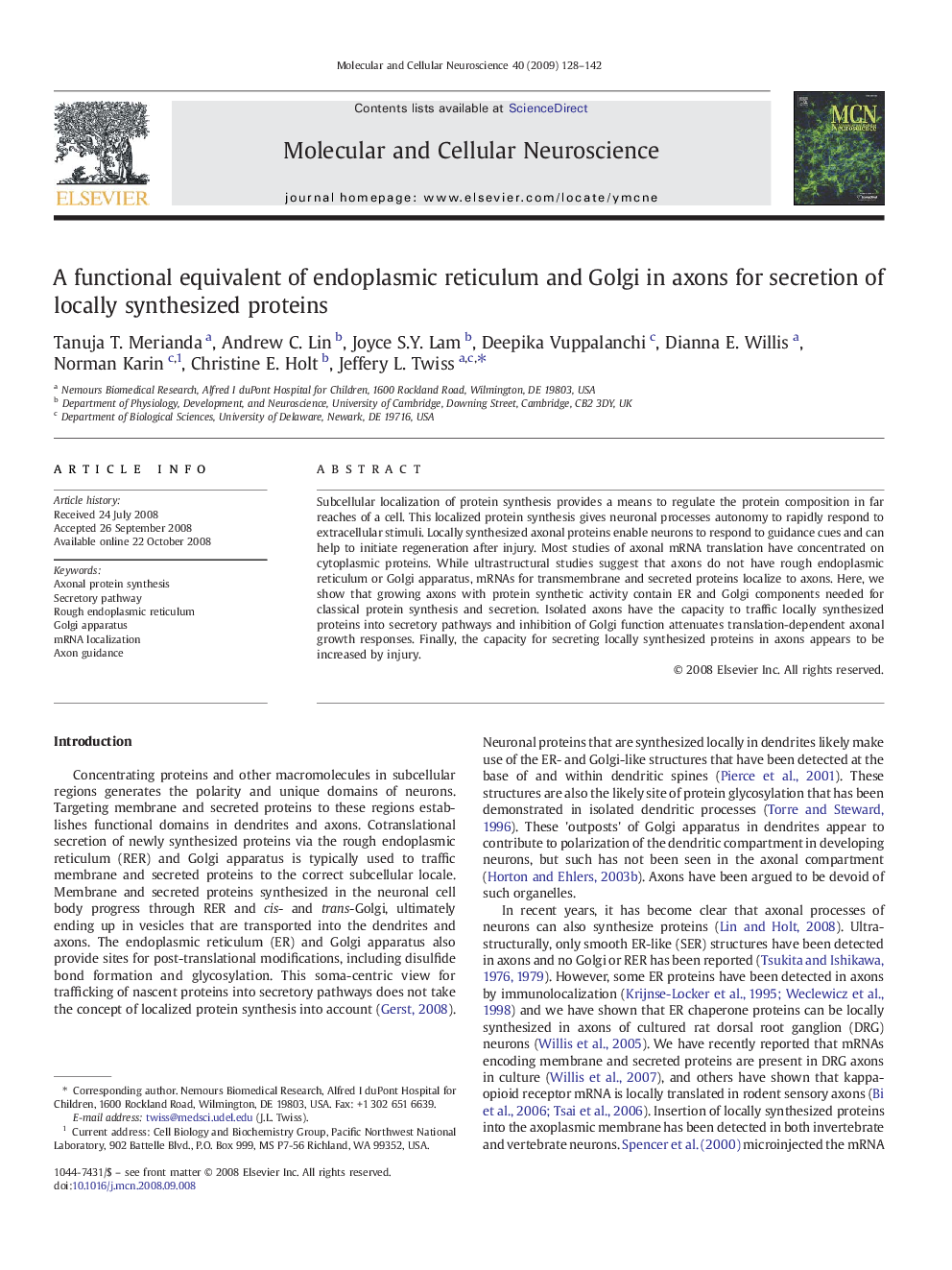| Article ID | Journal | Published Year | Pages | File Type |
|---|---|---|---|---|
| 10956710 | Molecular and Cellular Neuroscience | 2009 | 15 Pages |
Abstract
Subcellular localization of protein synthesis provides a means to regulate the protein composition in far reaches of a cell. This localized protein synthesis gives neuronal processes autonomy to rapidly respond to extracellular stimuli. Locally synthesized axonal proteins enable neurons to respond to guidance cues and can help to initiate regeneration after injury. Most studies of axonal mRNA translation have concentrated on cytoplasmic proteins. While ultrastructural studies suggest that axons do not have rough endoplasmic reticulum or Golgi apparatus, mRNAs for transmembrane and secreted proteins localize to axons. Here, we show that growing axons with protein synthetic activity contain ER and Golgi components needed for classical protein synthesis and secretion. Isolated axons have the capacity to traffic locally synthesized proteins into secretory pathways and inhibition of Golgi function attenuates translation-dependent axonal growth responses. Finally, the capacity for secreting locally synthesized proteins in axons appears to be increased by injury.
Related Topics
Life Sciences
Biochemistry, Genetics and Molecular Biology
Cell Biology
Authors
Tanuja T. Merianda, Andrew C. Lin, Joyce S.Y. Lam, Deepika Vuppalanchi, Dianna E. Willis, Norman Karin, Christine E. Holt, Jeffery L. Twiss,
